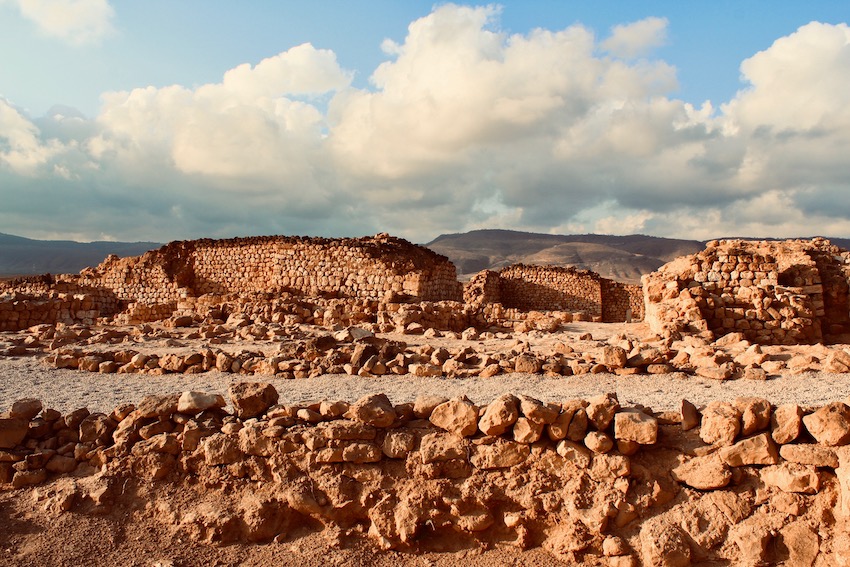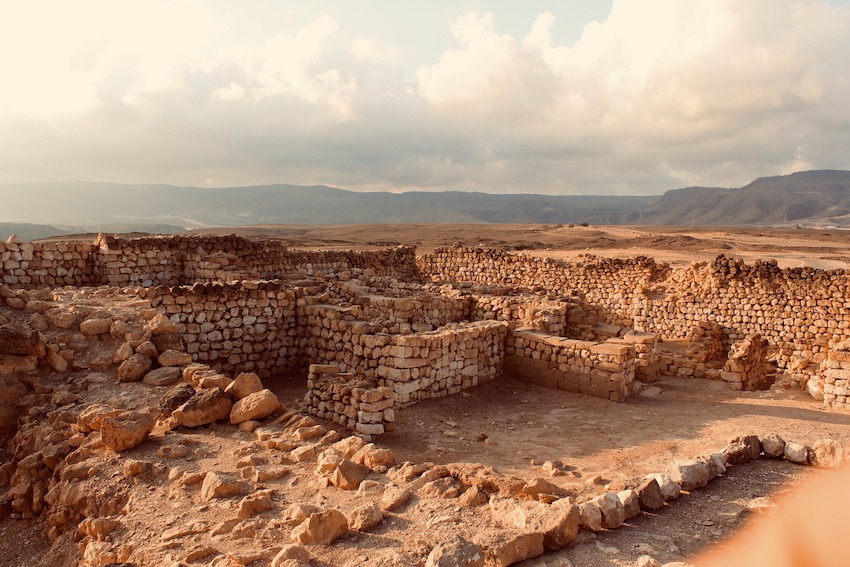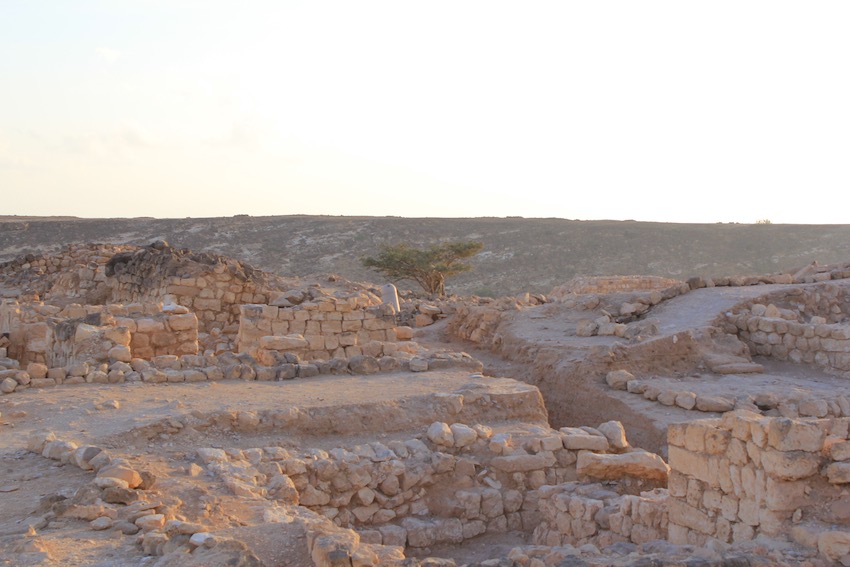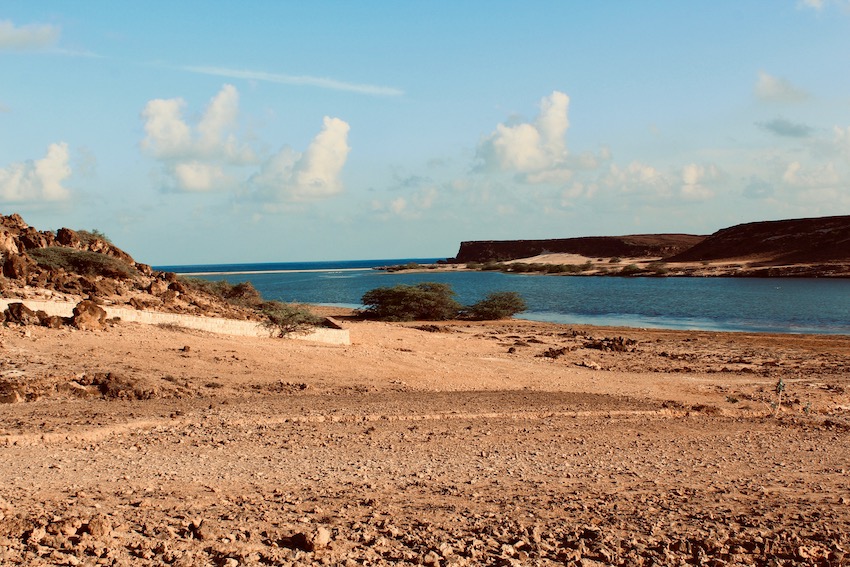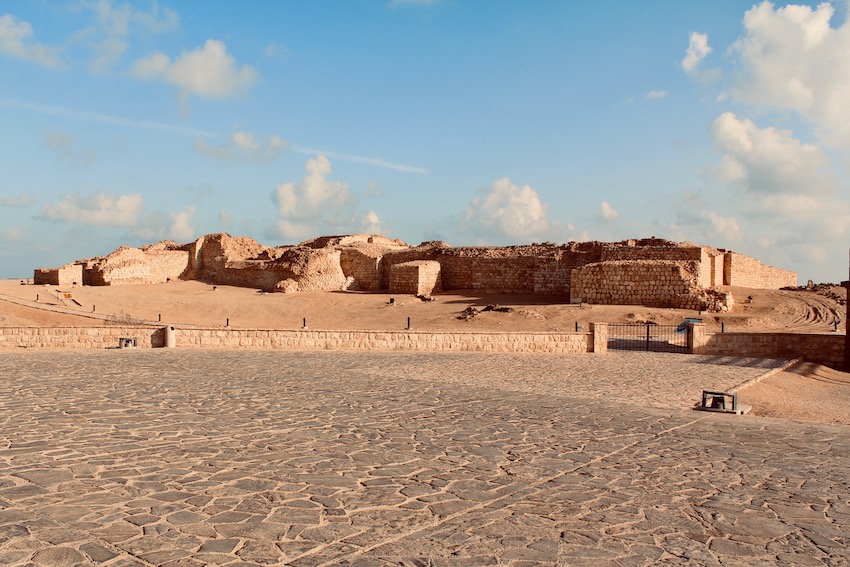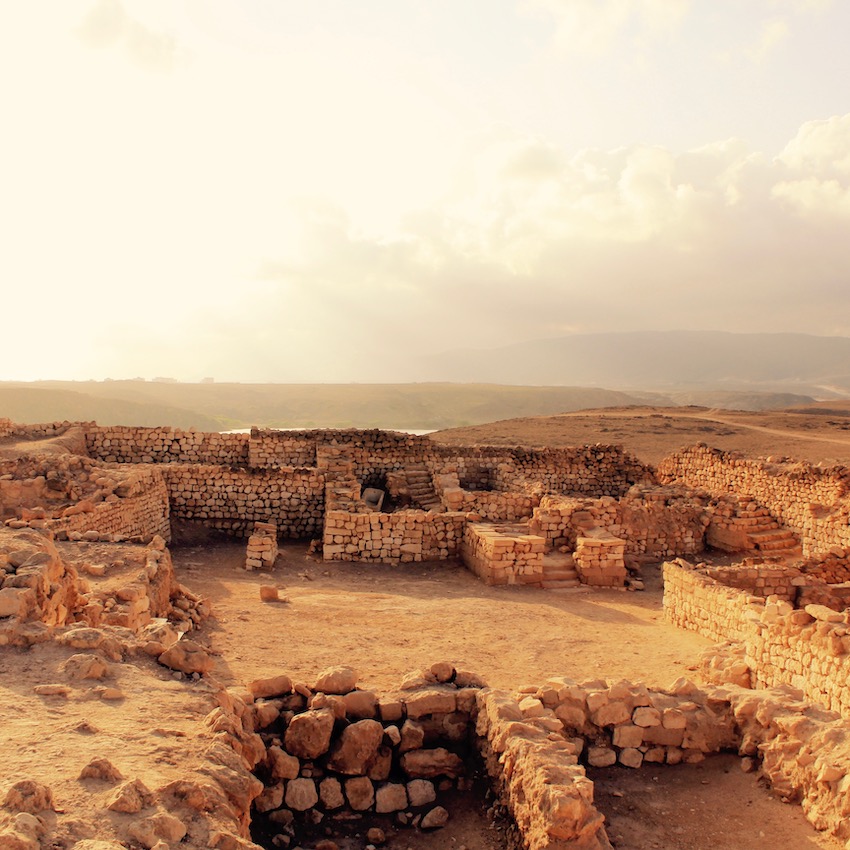Sumhuram
Sumhuram Khor Rory:
Khor Rori, also known as Sumhuram, is the ancient port city found 40 Km from Salalah. It was once the world’s hub for the Frankincense trade, where ships from civilizations such as Mesopotamia, Ancient Egypt, The Eastern Indus valley and The Mediterranean Sea sailed to the port of Sumhuram in Dhofar to trade goods.
The growth and prosperity of south Arabian kingdoms depended on the developments of the frankincense trade. It was an important seaport with an international trade network for over 800 years and maintained its wealth. Sumhuram date’s back, as early as the 3rd century B.C, and was the name of an important sovereign of one of the kingdoms of pre-Islamic Southern Arabia.
The kingdom of Saba was the most renowned of south Arabian kingdoms thanks also to its mythical queen mentioned in the Bible and Quran, Balqis- Queen of Sheba.
As we drove up towards the archaeological site, the fortified city became larger as it stands firm on the Lagoon of Khor Rori in the Indian Ocean. A local Omani at the security gate greeted us. After paying the small entrance fee, we parked close to the remains of what was the world’s largest Frankincense port. The presence of how lively and energetic this vibrant city must have been could be felt as you listened to the silence that remained. I climbed to the top of the City Buildings and overlooked the seaports where guard’s men could see the ships sailing from afar. Climbing over the buildings into, what once was a storehouse for vast amount of frankincense, I noticed inscriptions on the wall in a language what is known as Situ. A pre Arabic Language. You can notice the site was divided in to many segments. There was a residential area, a templar and area with storehouse and even a market square.
Ancient artefacts have been found at Sumhuram in metals such as bronze and iron, which can all be viewed at the onsite Sumhuram Archaeological gallery. Items such as nails, hooks, clips, locks, mirrors, small rods for applying kohl, hairpins bracelets, necklaces, rings, incense burners, bells and animal shaped objects for decoration have all been discovered, confirming this place was a thriving trade city. Sumhuram has the city temple of Sin. There is wide bronze basin in particular with a dedicatory inscription in relief round its rim mentioning the god Sin and his temple in the city of Sumhuram. Coins have been found at Sumhuram all in bronze from southern Arabia and some had imitations of Alexander the Great tetra drachma with the sovereign’s head on the reverse side
Sumhuram is surrounded by high walls and had a monumental gate. The site stands on a flat-topped hill about 25 metres above the sea level. The city walls are 2 meters thick on the southern side where the slope makes attack difficult. The city gate of Sumhuram is unique and is one of the most elaborate and imposing defence constructions known to date. The total discovered site is an area of approx 1 hectare,
The beauty of the place and the magical atmosphere that can still be felt struck the navigators in antiquity and they imagined the port to be protected by a God. “ Incense can stand on the quay without being guarded thanks to the power of a God who protects it. Not even the grain of the precious resin can be loaded unlawfully. If a grain of incense is loaded the ship cannot sail for it is against the will of God”.
The natural habitat of the frankincense tree is found in very few regions in the wild. Since ancient times Dhofar has been known as the par excellence place for frankincense production. Frankincense has had many uses. In ancient Egypt it was used to mummify the dead, in Rome in the cults of the gods and during funerals. It also had everyday uses indeed it was good for preserving food during transport. As a component of regal power and sexual attraction frankincense was considered a product with mythical connotations. Legends surrounding the difficulty in harvesting it and its country of original multiplied. The place in which trees with a bark that gave forth a divine fragrance could take root became known as the country of purity and happiness” Arabia Felix”.

